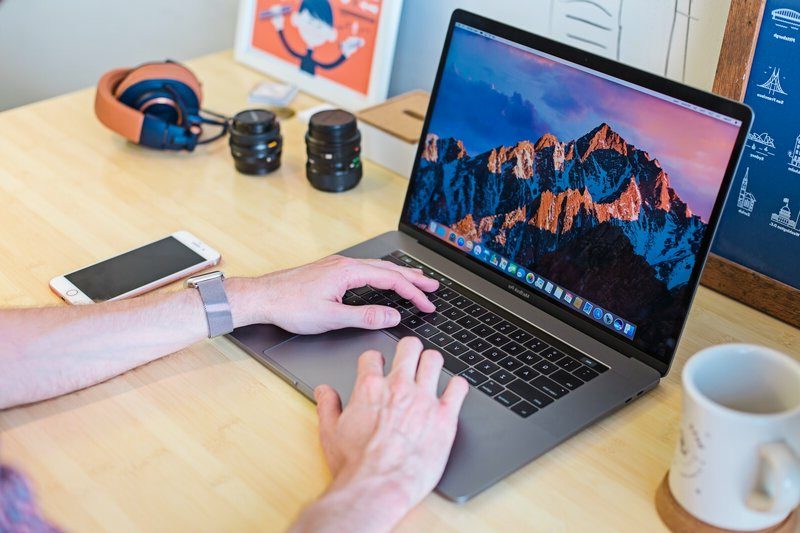Excessive heat can adversely affect the performance and lifetime of your computer. But how hot is too hot for a laptop?
The ideal temperature range for laptops to not overheat is around 130°F or approximately 55°C. This figure varies depending on the specific situation.
We will discuss how laptops heat up and some tips to avoid overheating. Let’s join us and learn how to care for the device!
Contents
How Hot Is Too Hot For A Laptop?
A laptop can get heated for different reasons. However, they are sometimes undetectable at first look. As a result, it’s critical first to figure out what’s generating the excessive temperature increase.
How hot is too hot for a laptop? Often, a CPU can endure up to the heat of 130°F. You may expect a different number depending on the conditions you use your device in and what their components are.
Conditions
If you’re working on a device outside in direct sunlight, you’ll need to be much more attentive than if you’re working in an air-conditioned area.
Under normal conditions, anything below 140°F is OK, although it is preferable to keep it below 130°F.
However, there are times when your system is under heavier stress. It is typical for your machine to reach temperatures in the tolerant range.
Under full load, a heat up to 160°F is acceptable. On the other hand, a constant hot temperature might harm your machine in the long run.
Likewise, the processor should not exceed 110°F in proper usage and 175°F while under intense pressure.
If you own a gaming system, you need extreme caution. Because gaming laptops work at a considerably higher workload, keeping them cool is much more challenging.

Consider how you are using your machine
Components
You may experience temperature excesses and lows in all electrical gadgets. Extreme temperatures can cause LCDs to freeze or your machine to break down and close down.
The heat may damage some components of your laptop. If the machine becomes too hot, switch it off and allow it to cool down to room temperature.
Why Does A Laptop Heat Up?
There are several reasons for your machine to heat up. Once you’ve learned the causes, you can find the solutions quickly.
Compact design
All of the components of a laptop stay in a tiny space. The only thing to cool them down is the small fan within the case.
While running, the components release a lot of heat, which is difficult to dissolve because of the limited system. Computers can overheat because of poor thermal conduction.
High computing power
In tiny and sophisticated laptops, high computer resources significantly impact heating.
More power is necessary as the number of applications on the system increases. As a result of the more computer power, the temperature within the laptop rises.
Computationally intensive tasks, such as editing videos or playing games, generate more electricity and heat.
If you think you use CPU-intensive apps frequently, you might want to begin with a machine with no heating problems.

Your machine may be suffering from too heavy a workload
Improper surface
When you use the computer on an improper surface, it might generate a lot of heat. The placement of the ventilation openings is not only on the sides but also underneath the machine case.
Thanks to the notebook’s little support legs, air may circulate in the tiny hole between the bottom and the cover.
The system’s ventilation will not operate effectively if the airflow holes get clogged by uneven surfaces, such as a blanket or a sofa. The same thing happens when you place the laptop on your lap.

The surface also affects the system
Dirt and dust
The already poor cooling flow might worsen due to the dust and grime within the laptop casing. The microscopic particles can accumulate on the airflow system within the housing.
Dust and debris block the ventilation openings over time. As a result, the machine’s cooling system and air circulation can’t work properly. Then, it overheats.
External influences
The temperature rise in laptops can vary because of external factors.
For example, some people frequently use laptops outside. It warms up faster and runs hot due to the increased outdoor temperature and direct sunshine. If the light shines directly on the device in the summer, overheating can also arise.
How To Maintain A Safe Temperature For A Laptop?
The best way to avoid overheating is to keep your laptop at a safe temperature. Here are some tips for doing it.
Close unnecessary programs
Running too many applications at the same time may speed up the heating. Once the laptop components are under pressure, they heat the whole system.
As a result, make sure that only the tasks you are working on are active. Close all the unnecessary background programs by accessing the taskbar. This video shows you how to do it quickly.
Check the fan
The fan is the only part within the system that can cool things down. It would be best to check it regularly to ensure that it works properly.
Clean your laptop regularly.
A regular checkup is a good idea for every machine, including your laptop. If everything remains in an ideal condition, you don’t need to worry much about overheating because of excessive workload.
Place your laptop on flat, hard surfaces.
Uneven surfaces make the machine release more heat. The best method for using laptops is placing them on a flat and hard surface. You can work with it easier while ensuring that it doesn’t get too hot.

How to use your machine properly?
Final Words
Many reasons accelerate the heating, both internal and external. They lead to overheating, which may ruin the whole operating system within your laptop.
Prevention is better than cure. It would be best to use the machine in proper condition. Moreover, don’t let it overwork.
Hopefully, you will find this article helpful. For any further information, please feel free to ask. Thank you for reading!

Paul Sullivan is the leading writer for articles on our website. He has over 10 years of experience as a technology reviewer, especially on laptops and computers.
With his long experience, we believe that he will bring you accurate and valuable knowledge and assessment.


